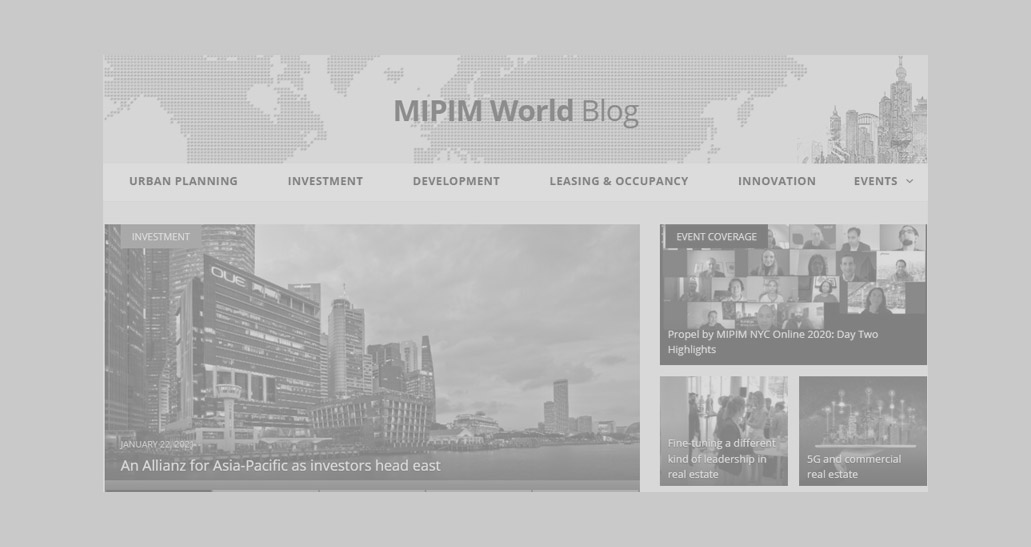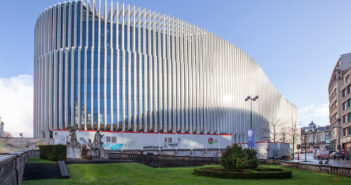Roger Madelin (above), Head of Canada Water Development, British Land gave a special keynote address on investigating sustainable development best practices & future opportunities. He discussed plans for the new sustainable development at Canada Water, which will include 1200 new homes for 2500 residents as well as new spaces for work, education, restaurants, retail, leisure and entertainment.
“Looking at what we do with land is as important as what we build on it. It’s also about social sustainability and social connections, especially as mental health becomes of more importance. If you create an environment where children and families can come, you will add value to the built environment.”
The climate change debate, sustainable development and carbon neutral cities
With climate change high on the global news agenda, this session looked at what the built environment is doing to promote sustainable building practices.
Carolyn Dwyer, Director of the Built Environment, City of London commented “We absolutely can make a difference and have to make a difference, climate change is here…we have to act now…In my view, the Scottish government has a really good plan for sustainability and a lot of their policies are really worth reading and learning from. Commercial developments will not be investable in the future if they don’t meet the standards now.”
Marco Abdallah, Head of Engineering, Drees & Sommer UK added “The challenges that face cities in terms of technology and sustainability is that most tech initiatives fail and that’s because they’re not user friendly. The user has to accept technology. The next generation is much more open technology. I believe that this will make a very big change. A building in London typically consumes twice the energy it was designed to consume… It’s absolutely necessary that the regulation in the UK for sustainability has to be prioritised. The only solution I can see is a circular economy.”
Smarter Cities: Financial and development best practices from abroad
This session asked how smart, clean and digital technologies are helping cities overcome economic and societal challenges.
Alice Charles, Lead, Cities & Urbanization, World Economic Forum said: “54% of our population live in cities…they are the location where wealth is created…however 75% of our natural resources are used in cities. Cities play a critical role in innovation and sustainability. The need for us to embrace innovation and technology is vital.”
Cllr John Alexander, Leader of Dundee and Chairman, Scottish Cities Alliance:
“A really good model is the six cities in Finland, which really resonates with our Scottish Cities Alliance, and what they do is involve the private sector, who can deliver sustainable projects, when the local authorities are stretched.”
Hannah Prideaux, Business Development added: “A city is only smart when people are ready for it. If the people don’t understand the smart technology, then the city isn’t smart.”
Housing options and innovation: How do we build and invest in what people need, want and can afford?
Social impact: how does it relate to real estate?
The first session after lunch explored what can be done to build and invest in what people need, want and can afford, and meet the government’s target of 300,000 new homes per year. It also looked at the extent that non-traditional housing models are supported by the public and private sectors, and explore the opportunities and challenges for them backing these new models.
“What we build is the same as 150 years ago. There’s a crisis of affordability, accessibility, design & sustainability. We have a deeply conservative industry and we need investors to be proud of developments made by new modes of construction” said Nick Walkley, Chief Executive, Homes England.



